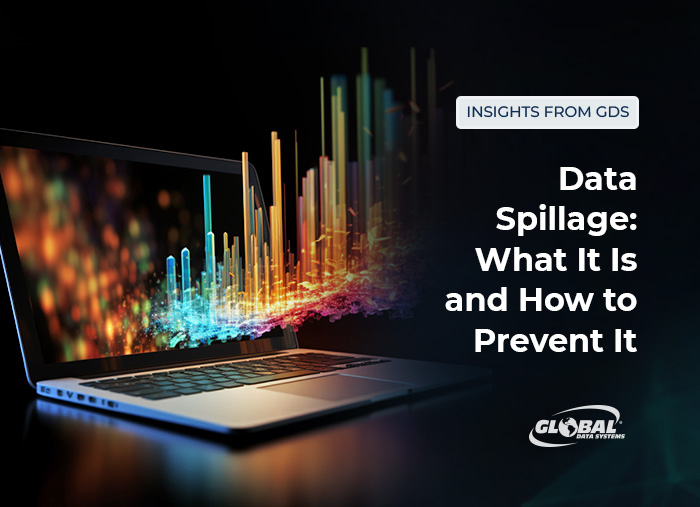Data Spillage: What It Is and How to Prevent It
There may be no use crying over spilled milk, but spilled data is another matter. When sensitive information inadvertently trickles out of networks or cloud platforms, it’s enough to bring tears to the eyes of executives, board members and IT leaders.

Data spillage is the unintentional or unauthorized disclosure of sensitive or confidential information. Unlike data breaches that involve malicious intent, data spills usually result from human error, carelessness or incompetence. Sharing files with the wrong people, emailing confidential information to the wrong recipient, or posting sensitive information on public websites or social media are common causes of data spillage.
The Facebook-Cambridge Analytica incident may be the most notorious data spill on record. As part of its efforts to enhance user engagement in 2013, Facebook actively encouraged the development of third-party apps by giving developers broad access to the personal data of tens of millions of users. That data wound up in the hands of consulting firm Cambridge Analytica, which used it to provide analytical assistance to Donald Trump’s 2016 presidential campaign.
It is considered a spill rather than a breach because there was no malicious attempt to breach Facebook’s systems — the social media company simply had extremely lax data-access policies. In response, the Federal Trade Commission hit Facebook with a record $5 billion fine in 2019. It is the largest civil penalty ever imposed on a company for violating consumers’ privacy.
Avoiding Data Spillage
To avoid data spillage and protect sensitive information, companies should implement a comprehensive cybersecurity strategy that includes policies, procedures, technologies and employee training. Here are some key steps and measures that organizations can take to prevent data spillage:
Data spillage is the unintentional or unauthorized disclosure of sensitive or confidential information.
Restrict data access. Implement strong access controls and authentication solutions to prevent unauthorized personnel from accessing sensitive data. Use role-based access control (RBAC) to restrict access based on job roles and enforce the principle of least privilege by giving employees only the access necessary for their specific tasks.
- Use encryption. Encrypt data to ensure that it remains unreadable and unusable to unauthorized individuals if a spill occurs. Implement encryption protocols and key management practices to maintain the security of the encryption process.
- Implement Data Loss Prevention. DLP solutions monitor user devices, email clients, file-sharing services, network gateways, and other network entry and exit points, alerting administrators when the sharing or transfer of data violates company policies. DLP tools also detect and block sensitive data from being transferred or shared through unauthorized channels such as email or external storage devices.
- Secure remote work. Use virtual private networks (VPNs), multifactor authentication (MFA) and secure remote desktop solutions. These tools ensure that employees have secure access to company networks when working remotely.
- Conduct security assessments. Regular security audits and vulnerability assessments help identify weaknesses in your systems and networks. Address any discovered vulnerabilities promptly to prevent potential data leakage.
- Monitor systems. Use network traffic analyzers, performance monitoring software and security information and event management (SIEM) systems to detect any suspicious or unusual behavior that could indicate a data spillage or breach. Set up alerts for any suspicious activity.
- Educate the workforce. Conduct regular security awareness training programs for employees. Educate them on data security best practices, the risks of data spillage and the importance of following company policies. Teach them how to recognize phishing emails and other social engineering schemes.
Ensure Data Integrity: Partner with GDS
Cybersecurity efforts often focus on malicious activities, but inadvertent data spills can be every bit as damaging. Contact the cybersecurity pros at GDS to learn more about building a multi-faceted approach to data security.
Benefits of Managed IT Services from Global Data Systems
- Strategic Managed IT: We help you solve your technology related business problems.
- Connectivity: We get you reliable, secure connectivity anywhere in the western hemisphere in 48 hours.
- Support: When you need help simply call our 24x7x365 support number.
- Billing: Instead of managing hundreds of vendors - get one, easy to read bill from GDS.
Contact Managed Services Provider, Global Data Systems >
